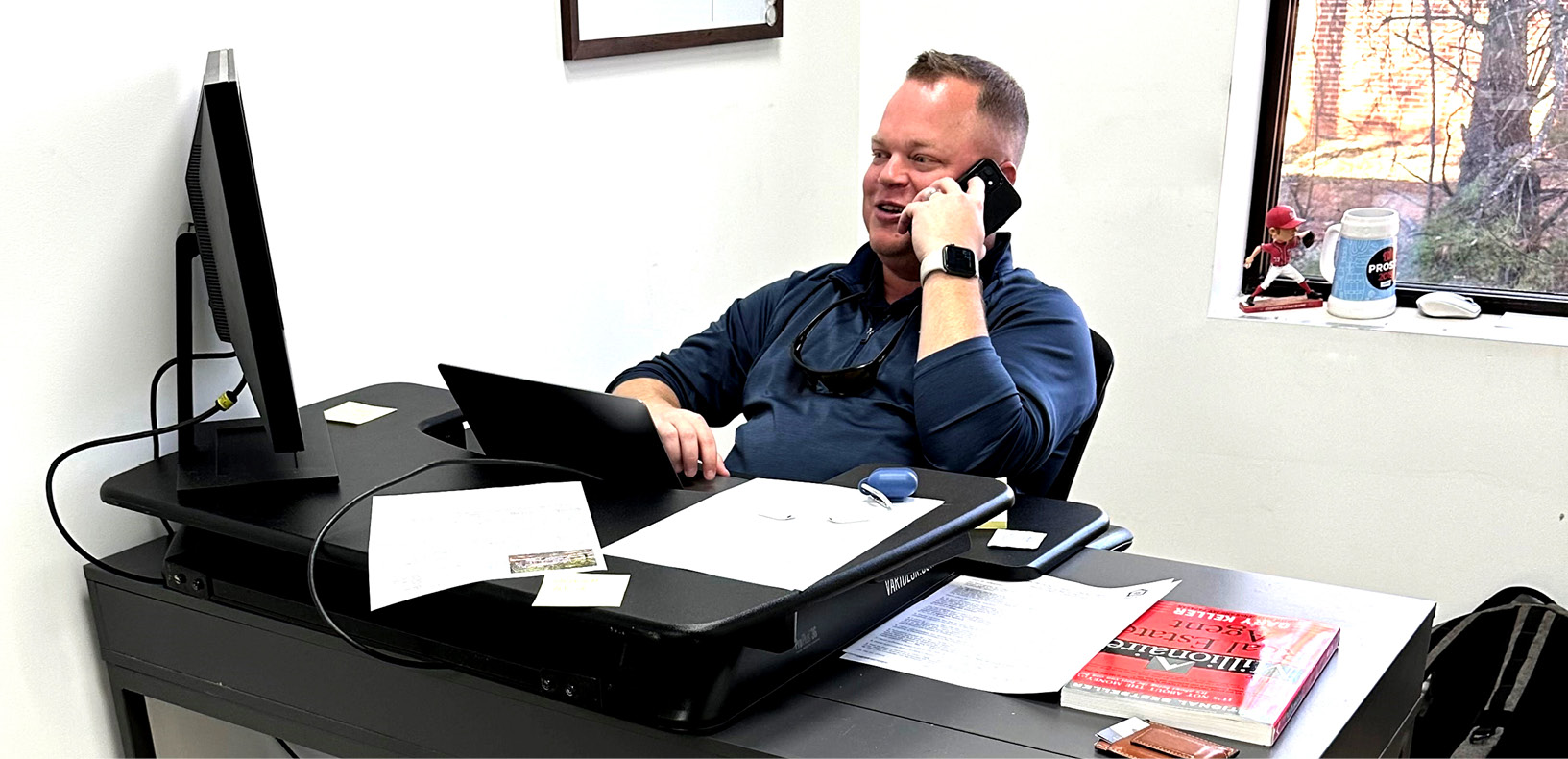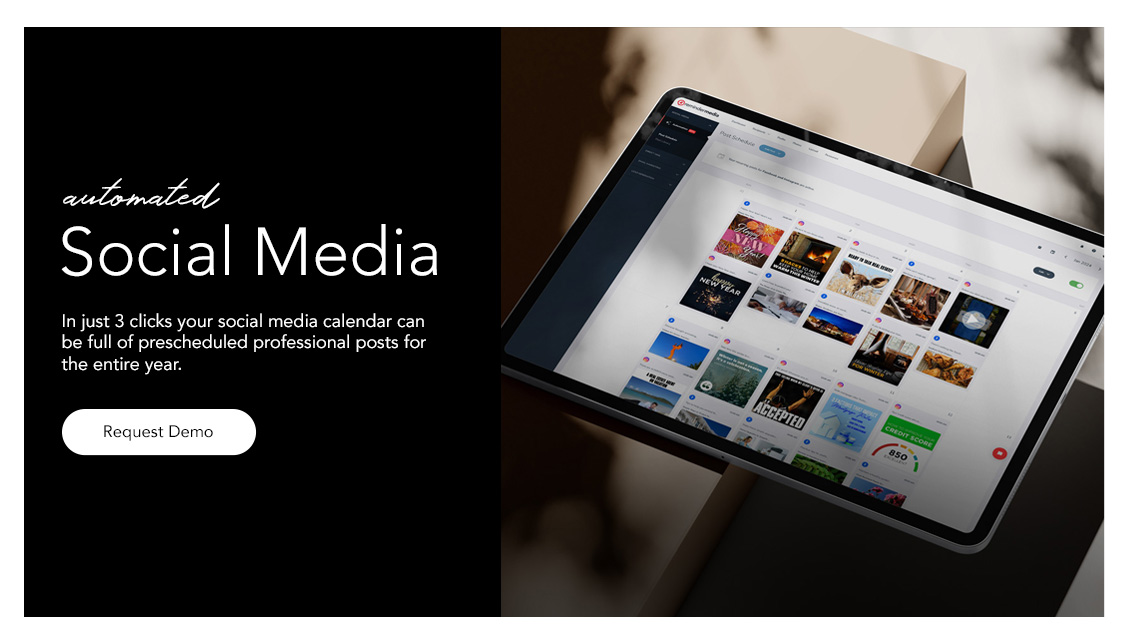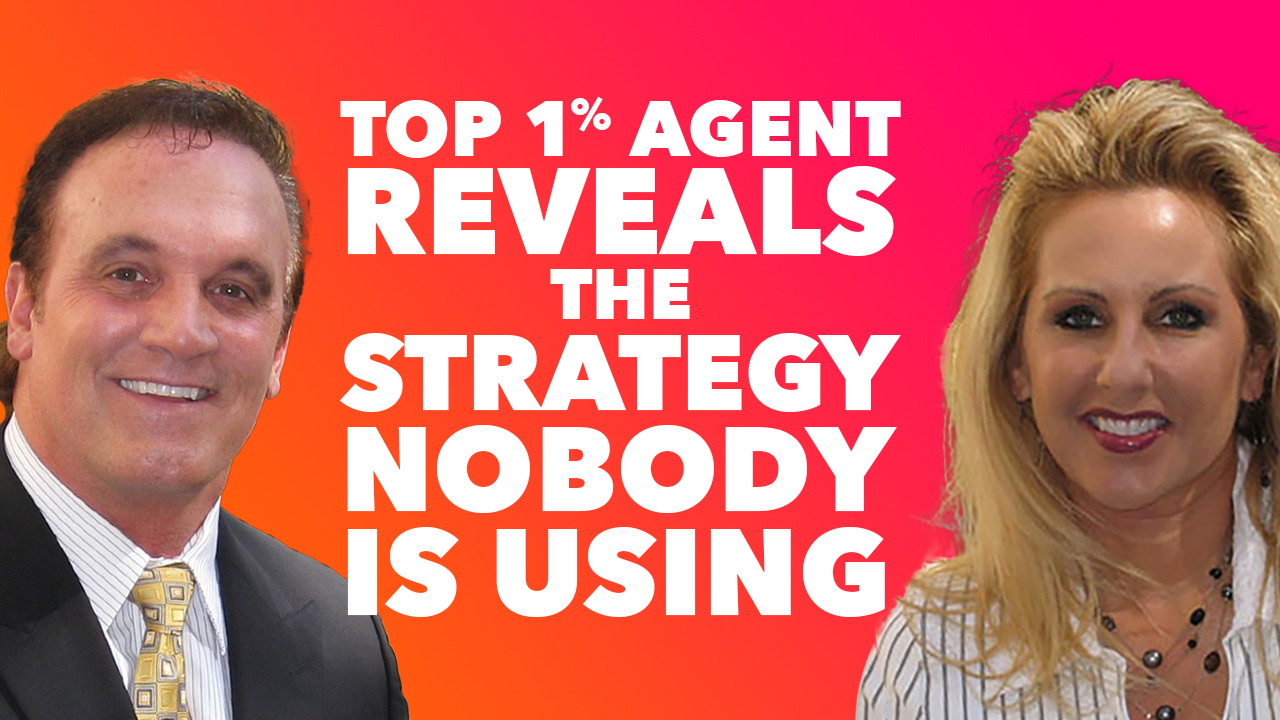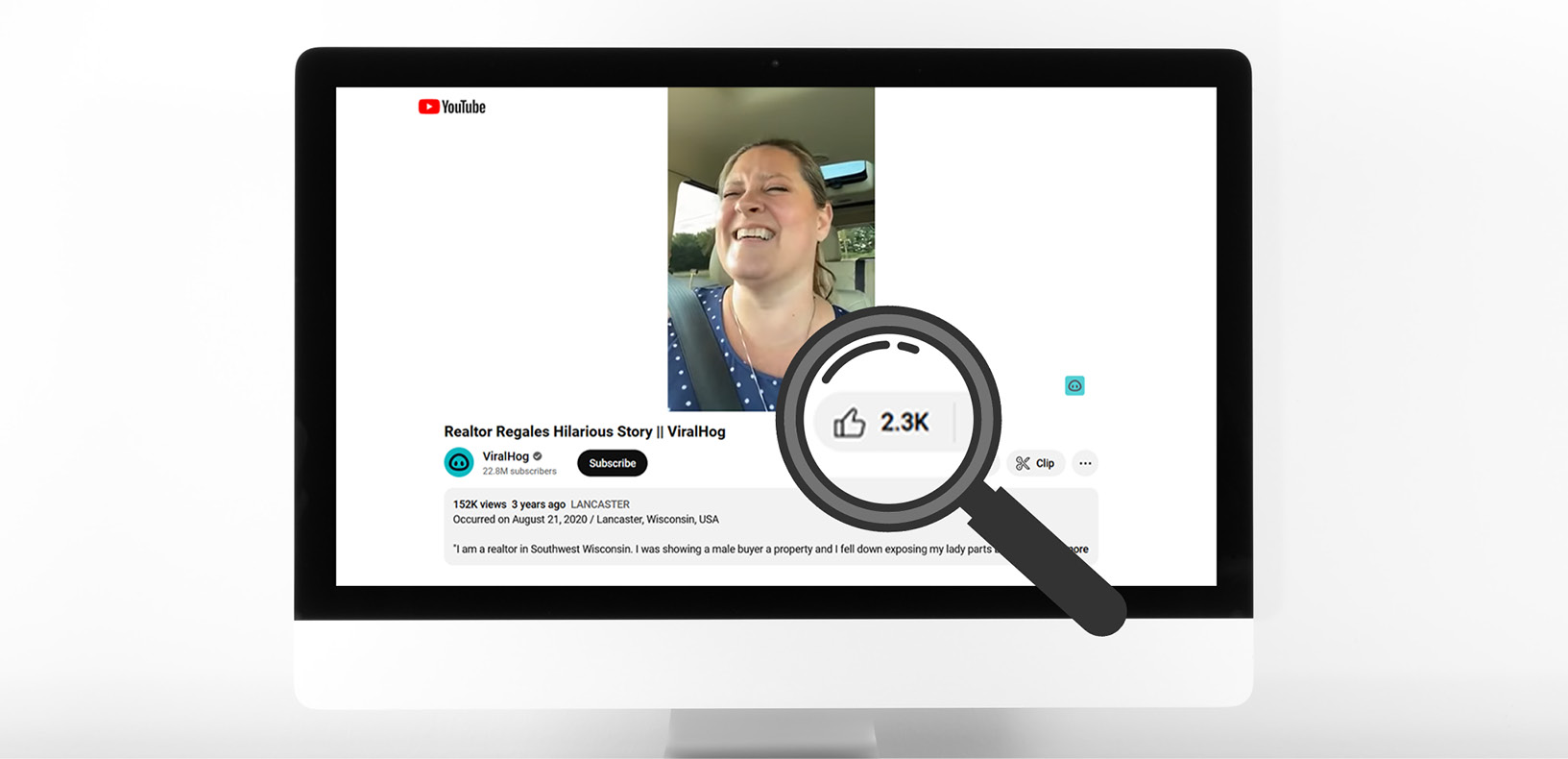Get genuine advice for creating mutually beneficial, trusting bonds with homebuyers and sellers to increase client retention and their lifetime value.
I’m super happy you found this blog, but before beginning, let’s revisit its title. This is not another piece about how agents can “build connections” or “grow a following.” Nor is it simply about how to “build customer relationships” online. There are lots of articles on this website and others that can help you build your numbers.
This blog is intentionally about how real estate agents can build authentic customer relationships on social media. The real value here is genuine advice for creating mutually beneficial, trusting bonds with homebuyers and sellers to increase client retention and their lifetime value.

Real estate agents who make the effort to build authentic customer relationships create brand advocates, encourage referrals, and boost their GCI.
Despite the many benefits of nurturing customer relationships, it’s surprisingly common for most businesses to keep their customers at arm’s length. In fact, in 2021, the CMO survey by the Fuqua School of Business reported that less than 10% of managers placed any emphasis on customer retention and lifetime value marketing metrics.
But if you want to leverage social media to create brand advocates, encourage referrals, and boost your income, then keep reading.
Why authenticity matters
Authenticity is important to your success because it’s one of the core drivers of trust, and as you’ve heard dozens of times—before someone will do business with you, they must first know, like, and trust you.

Authenticity is evident when people consistently align their beliefs and values with their actions. It’s the foundation for building trusting customer relationships.
When someone is authentic, they are behaving as their true selves. Their values and beliefs are aligned and evident in both their words and actions, demonstrating consistency. Authentic people act with consistency and encourage trust.
In an online world, authenticity is particularly significant because people have good reason to be suspicious of what they see on their laptops and phones. Factors contributing to our apprehensive attitude include:
- Easy anonymity: The online world provides a cloak of anonymity; anyone can be whoever they want. Online communication often relies on text, which misses out on facial expressions, body language, and tone of voice—the nonverbal cues that help us read people and assess their emotional state and true intentions. In business, customers don’t often see the people behind the scenes, which can make them hesitant to share personal information or believe claims.
- Prevalent misinformation: We’re bombarded with information online, and it can be hard to tell what’s true and what’s not. Things like manipulated photos and videos, made-up reviews, misleading advertising, and false information create a constant barrage of uncertainty, making people more skeptical of everything they see online and creating trusting customer relationships more difficult.
- Ongoing security concerns: People are understandably worried about the safety of their personal and financial information. Phishing emails, fake websites, social media cons, and data breaches all contribute to a general sense of wariness online, eroding trust in websites and companies.
- A lack of intimacy: Small talk, shared experiences, and casual interactions all help build rapport in the real world. Online, these can feel forced or awkward, making it harder to build that initial sense of connection and trust.

Anonymity, misinformation, security breaches—the internet can be a scary place, placing a premium on authenticity.
Despite these challenges, building authentic customer relationships online is definitely possible. The key is to begin as you would when starting any meaningful relationship—get to know the other person.
Social media provides ample data to discover your target audience’s interests, where they are most active, when they tend to be online, and more. Once you understand your audience, you can start to foster trust through consistent and transparent communication, a willingness to be vulnerable, and a commitment to building a positive online reputation. Succeed in each of these, and you’re going to stand out.
Communicate openly and regularly
Transparent communication simply means communicating in ways that are easily understandable, free from ambiguity, and truthful. Given recent events within the real estate industry, these qualities are at a premium.
First, begin laying a foundation of clear communication by defining your personal brand, mission, vision, and values and reiterating them over and over in the same voice. Include your unique value proposition (what makes you different from other agents) on your website but also place it in your email newsletter and your social media bios.

Listen to this episode of Stay Paid, and get the essentials for building a powerful personal brand.
Then start using the power of pictures and/or video to combat the anonymity to which online communication is prone. Start small. You don’t have to do all of what I recommend; just pick one to start.
Post pictures of your personal life
Images of family, friends, social outings, vacations, significant moments like birthdays and other celebrations, and even not-so-significant moments like the first rose bloom in your garden give your audience a chance to see you outside of your role as a real estate agent.

This image of ReminderMedia’s president’s family outpaced just about every other post in likes and comments that he put up that week.
Record videos to share the real you
Videos are especially effective in eliminating the lack of nonverbal cues so important to assessing someone’s intentions and personality. Let your audience see and hear you in all your humanness. Post your screw ups with pride—we all make mistakes, and it’s something your audience will relate to.

Let’s face it—a day in the life of a real estate agent means a lot of phone time, including calls that strengthen customer relationships!
Consider trying one of these videos to see how it goes:
- Day-in-the-life: All you need to do is document your day, showing what goes on behind the scenes—there’s no script, no rehearsals, and no staging required.
- Educational: By now, you should be actively reaching out to your sphere, explaining what the NAR lawsuit and settlement mean for them (even if what it means isn’t quite clear yet). But you can go a step further by taking advantage of an opportunity to proactively educate others with a video posted to social media. For some excellent advice about how you can position yourself as an authority on this topic, check out another of our blogs, “How Agents Can Leverage the NAR Lawsuit Settlement.”
- Video texts: Real estate agent Ed Stulak is an absolute pro at sending video messages. I was recently on the receiving end of one of his communications, and it made a big impression. It felt incredibly personal, as if we were old friends. If you haven’t ventured into videos yet, I recommend you start with video messages. It’s a channel that is not used nearly as much as it could be, so you’re going to stand out.

As Ed Stulak has said, if you’re willing to knock on doors and make cold calls, then you should have no problem sending a video message on social media.
Be vulnerable
Vulnerability is about creating an emotional connection with your audience to foster a more relatable brand image. The easiest way to achieve this is to share aspects of your life that just about everyone can identify with.
Focus on shared struggles
Everyone struggles—it’s simply a part of the human condition. Whether your struggles are about overcoming challenges in your real estate business or your life outside of work, having a tough time is something every person has experienced and understands.

We’re all faced with challenges. When you share yours, it allows people to respect your courage and connect with you over shared experiences and feelings.
When telling a story, be mindful about what you share. Never forget that the reason for sharing your experience is to build customer relationships and not to reveal information best reserved for a therapy session. Additionally, you’ll always want to bring your stories back to a positive outcome. Explain how you overcame the struggle, what you learned, or even how your service helped someone else with their hardship.
When thinking about what you might share, consider these ideas:
- A lesson you learned the hard way
- Your personal journey toward achieving a goal
- Setbacks you encountered on the way to building your business
- A story you heard or something you saw that had an impact on you
Celebrate imperfections
Being able to laugh at yourself and poke fun at your mistakes or quirks shows you’re not afraid to admit you don’t have all the answers. This behavior demonstrates humility and builds trust as prospects and clients get to see you as someone who is genuine, approachable, and willing to learn. Plus, laughter is universal—being able to share a laugh with your audience builds bonds.
As a real estate agent, you probably don’t need to look very far to find an experience you’ve had that will fit the bill. Reflect on mistakes you’ve made or situations you’ve encountered that (at least in hindsight) are downright comical. Share them, all the while grinning and laughing at yourself.
Even more, accepting that mistakes happen will free you from the tyranny of perfection. When recording a day-in-the-life video as suggested above, go ahead and post those less-than-perfect recordings. Don’t worry about the bloopers—they’ll work to show you can take things in stride.
Appreciate and respond to comments
By now, life has likely taught you that relationships require give and take. This same dynamic applies to customer relationships.

Put aside time each day to strengthen your customer relationships by responding to comments and posting to your followers’ pages.
As much as you encourage people to respond to you, it’s equally important to validate their vulnerability by acknowledging and responding to their comments in a genuine and helpful way. In so doing, you’ll demonstrate that you care about your audience’s experience. Plus, you’ll increase your brand awareness and eventual recognition. (This Stay Paid podcast episode explains how comments can be just as effective in attracting followers as posting new content.)
Create a positive online reputation
Once people find your business, whether by scrolling through their social media or searching for your website, they’ll want to check out both sources for information. So while I’ve primarily discussed using social media to create authentic customer relationships, your website plays an equally important role. Together, they present what you want to be perceived as a trustworthy brand image.
Be consistent
There are many factors that influence the trustworthiness of a brand. Earlier, we established that authenticity and consistency contribute to trust. To appear consistent online:
- Maintain your voice and values. Being predictable is a virtue when it comes to customer relationships—it allows your audience to feel confident that they know who you are and what they can expect from you.
- Commit to a regular posting schedule. It’s better to post reliably once a week than to post every day for a month and then give up.
- Set and honor clear expectations. Be transparent about your processes and any limitations in your service. Your clients will appreciate knowing what they’re going to get.
Offer value
At the risk of oversimplifying the matter, to offer value, you need to know what your audience perceives as valuable, and that requires knowing your audience. Whether your serving FSBOs, first-time homebuyers, retired seniors, homebuyers with disabilities, or another demographic, once you know your niche’s pain points and desires, you can use both social media and your website to offer content that meets their needs.

To be able to offer what your audience will consider truly valuable, you need to do a deep dive into their pain points.
When you engage in content marketing, be generous when sharing your knowledge—the more value you provide, the more your clients will see you as a reliable and essential resource. They’ll appreciate an expert who can solve their problems, but they’ll also enjoy content that entertains them. By providing your audience with a mix of information, you’ll become their go-to source and strengthen your bond.
- Your first step might be to use AI to write blogs and create social media content. The simplicity of using AI to produce blogs, video scripts, and even videos ready for posting can’t be overstated. If you’ve been hesitant to try content marketing because you don’t enjoy writing, are unsure where to begin to produce a video, or think it will take too much time, then tools like Gemini and ChatGPT will give you the confidence you need and the efficiency you desire.
- You can also check out companies that assist with posting to social media. There are lots of companies that will automate your posts, but you often still need to write the content. ReminderMedia’s Social Media Automation tool is different in this and other respects. You can select from dozens of content categories and then we pull timely content from our ginormous library and automatically post it to your Facebook and/or Instagram accounts according to your schedule. It’s a true set-it-and-forget-it tool that guarantees you maintain a consistent social media presence.

With our Social Media Automation tool, we’ll automatically post up to three times a day, seven days a week, and for as long as you like—whether it be days, months, or even years—and we’ll guarantee you maintain a consistent social media presence that requires no additional effort from you.
The takeaway
The online world can feel impersonal, but it doesn’t have to be. Imagine your ideal real estate client. What kind of relationship would you want to have with them?
Now, translate that into your social media presence.
By prioritizing authenticity, you can become more than just another face online. You can become a trusted advisor, a friendly voice, and a partner in their real estate journey. This blog offers tactics and suggestions for how real estate agents can build authentic customer relationships online that encourage these outcomes and fuel long-term business growth.
Remember, people do business with those they know, like, and trust—and that takes time. You don’t need to employ all these tactics at once; it’s OK to start slow and build on each success as you become more comfortable. I recommend starting with two: sending video messages because they ooze with authenticity, and checking out our Social Media Automation tool because it will give you peace of mind and relieve you of the constant struggle and stress of coming up with ideas and posting regularly.
Whatever you choose to do, take your first step today, and begin noticing the positive difference that creating genuinely authentic relationships with your clients and others makes to your business.





























